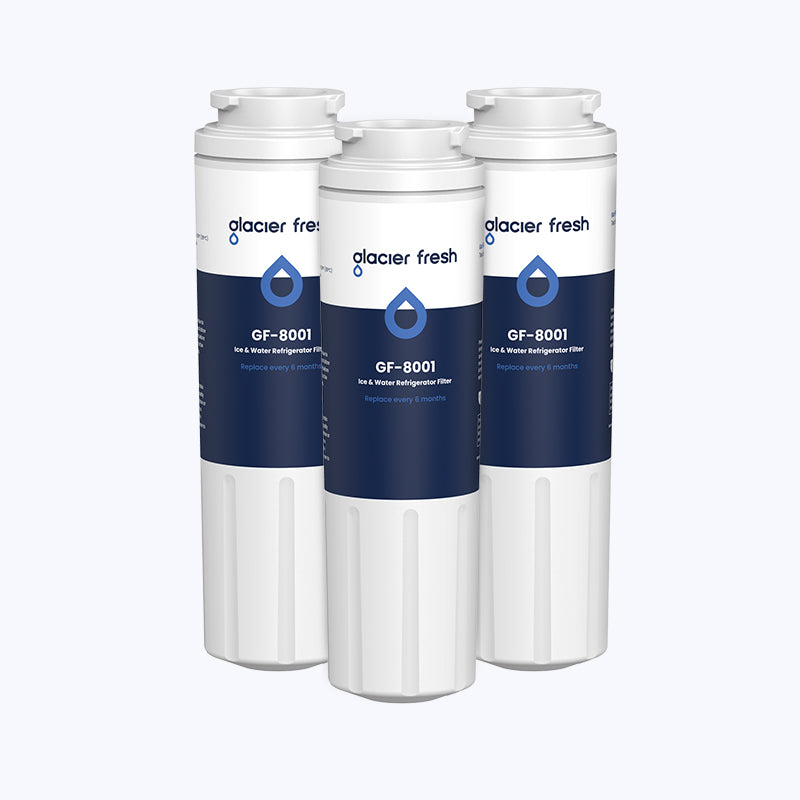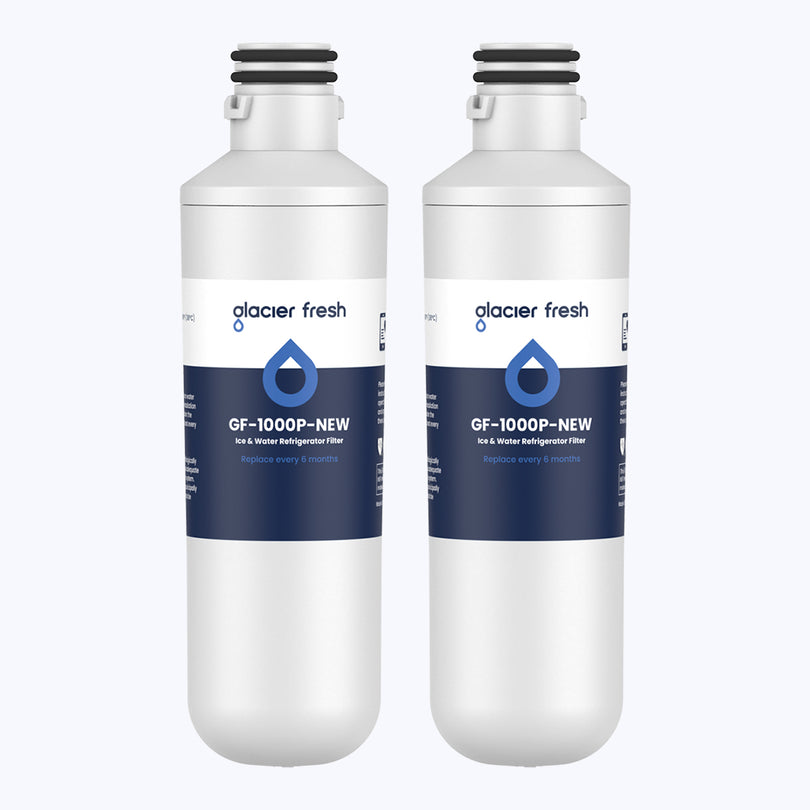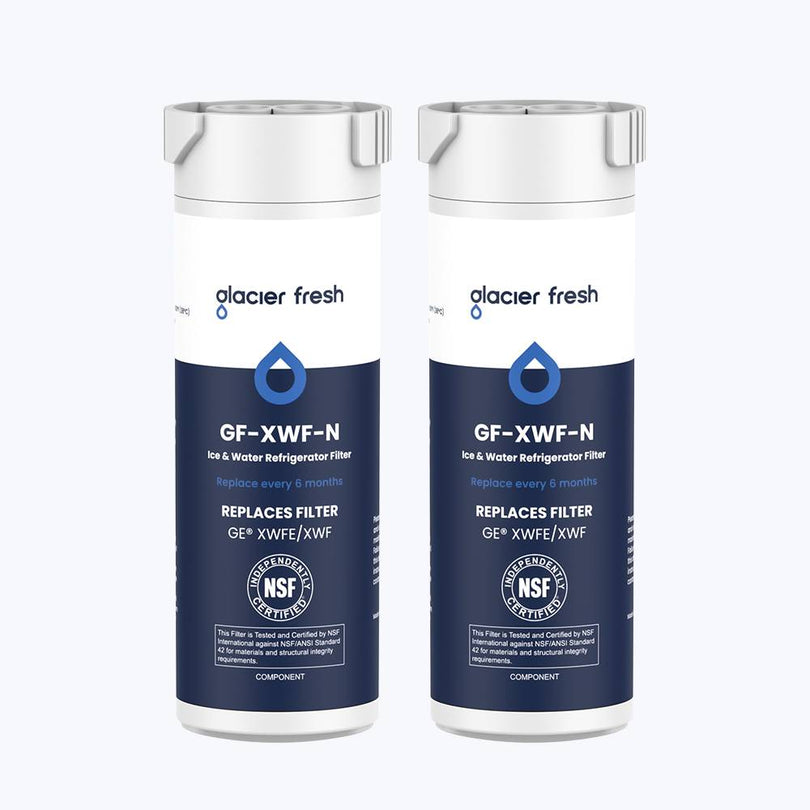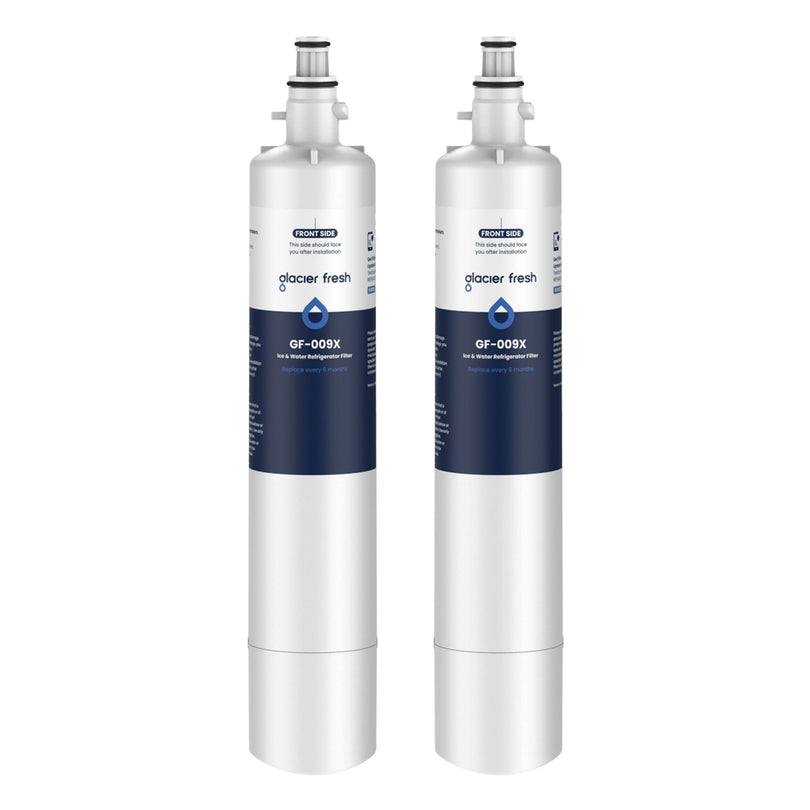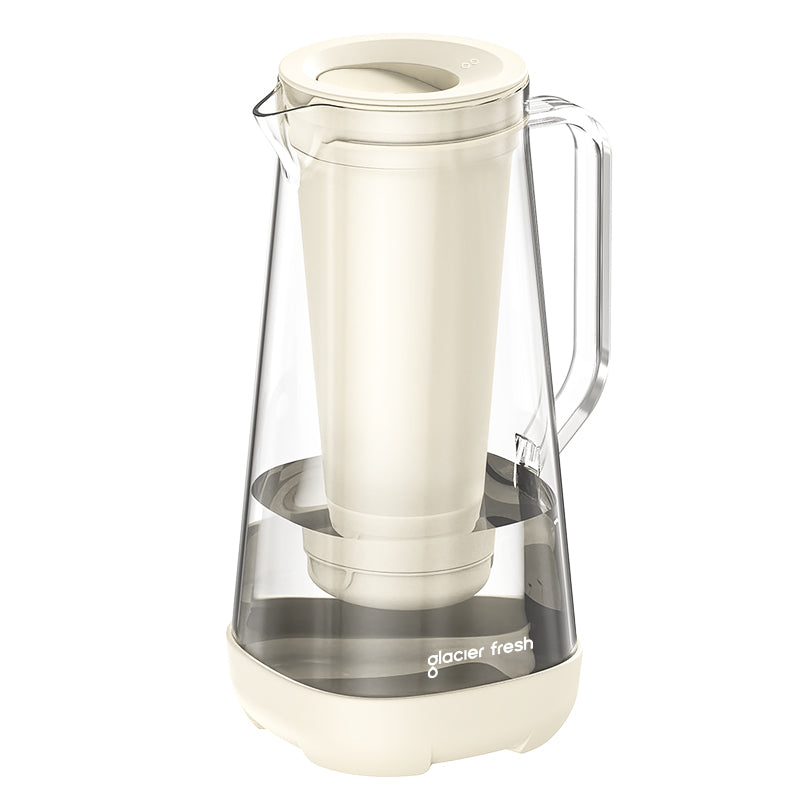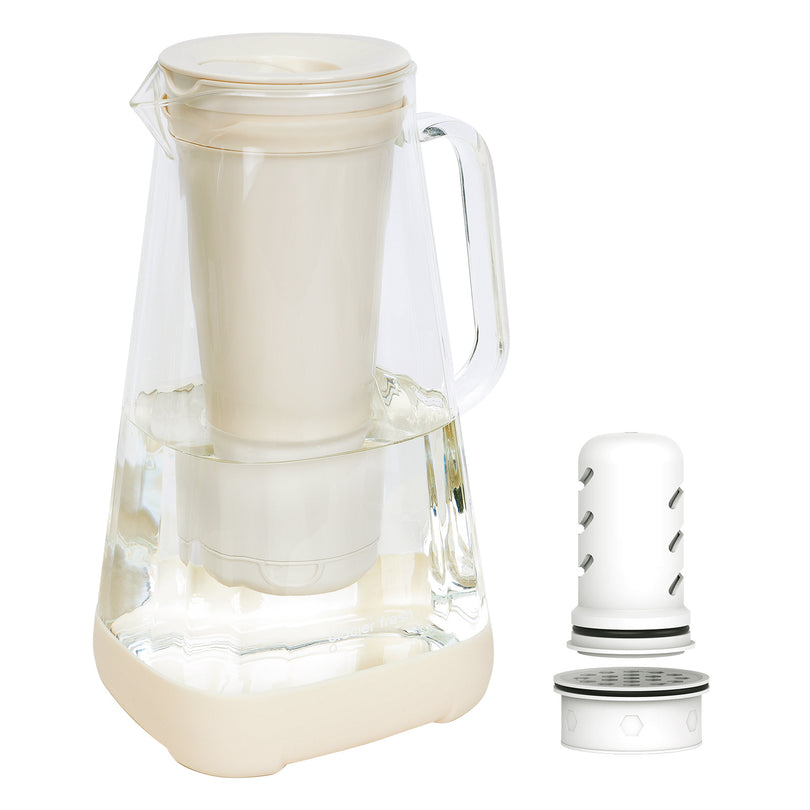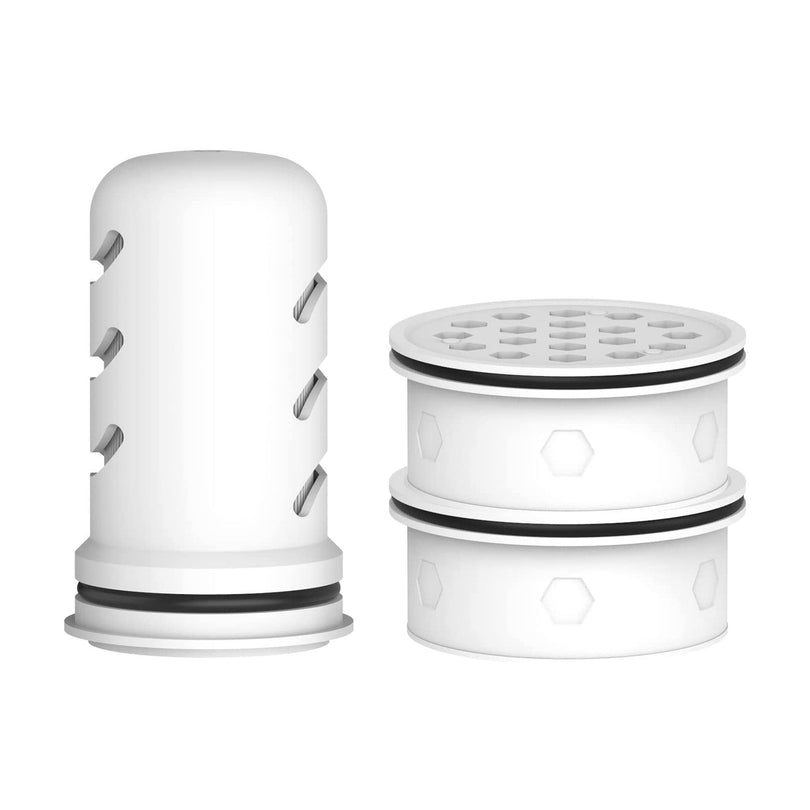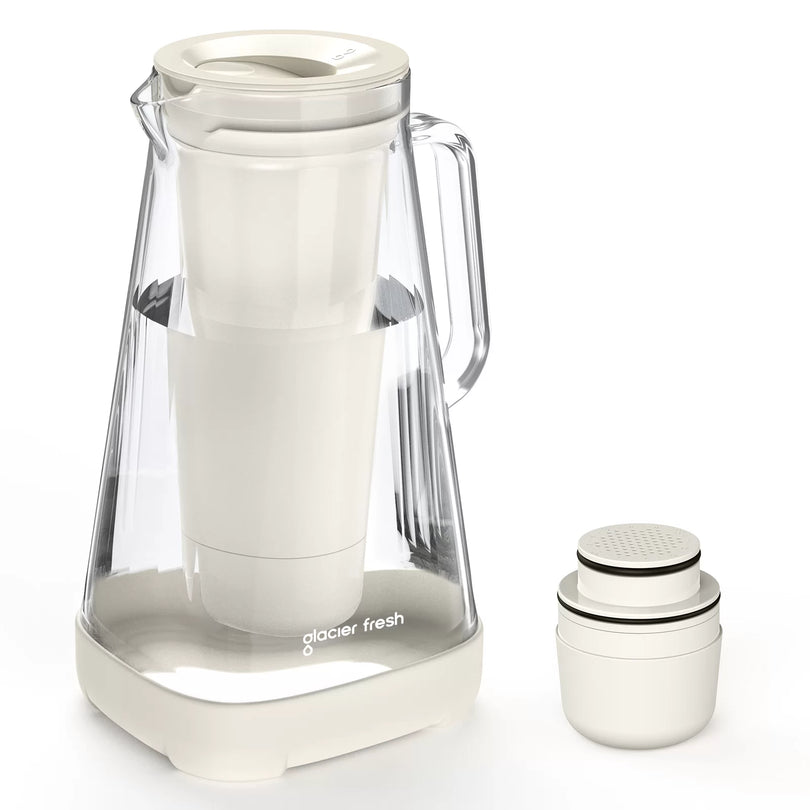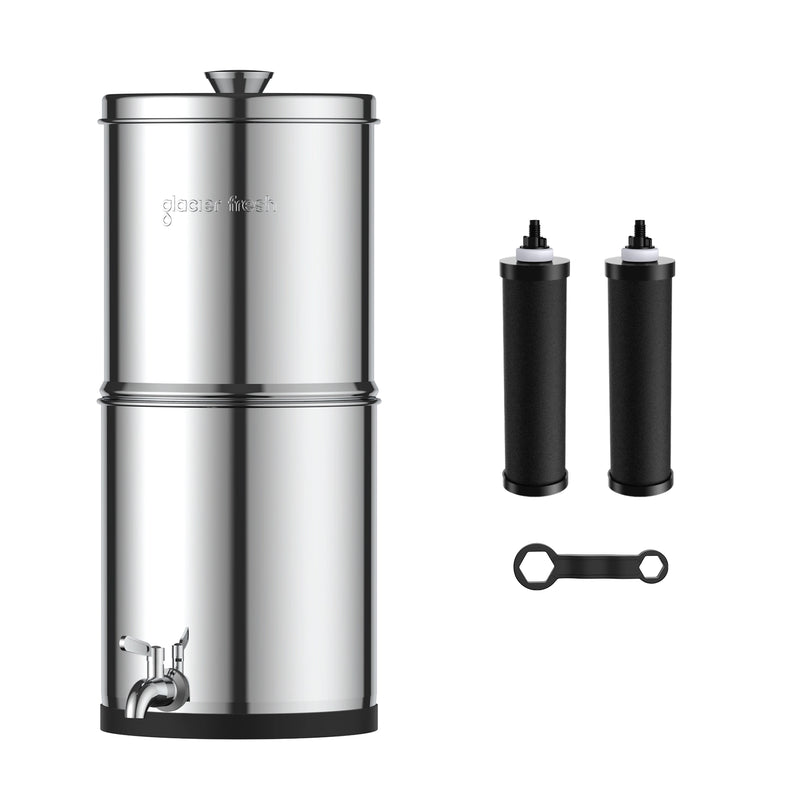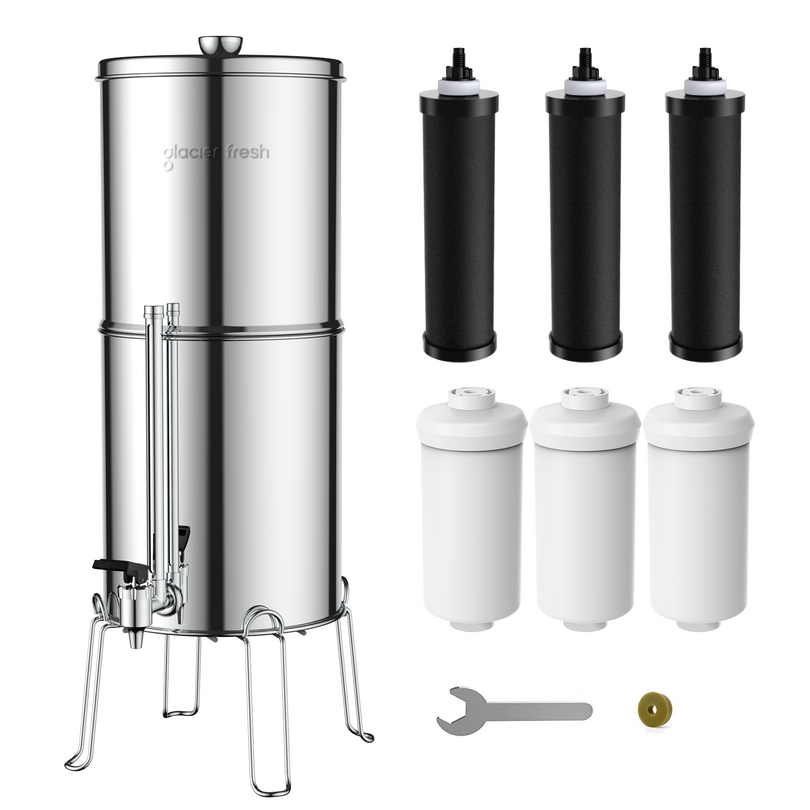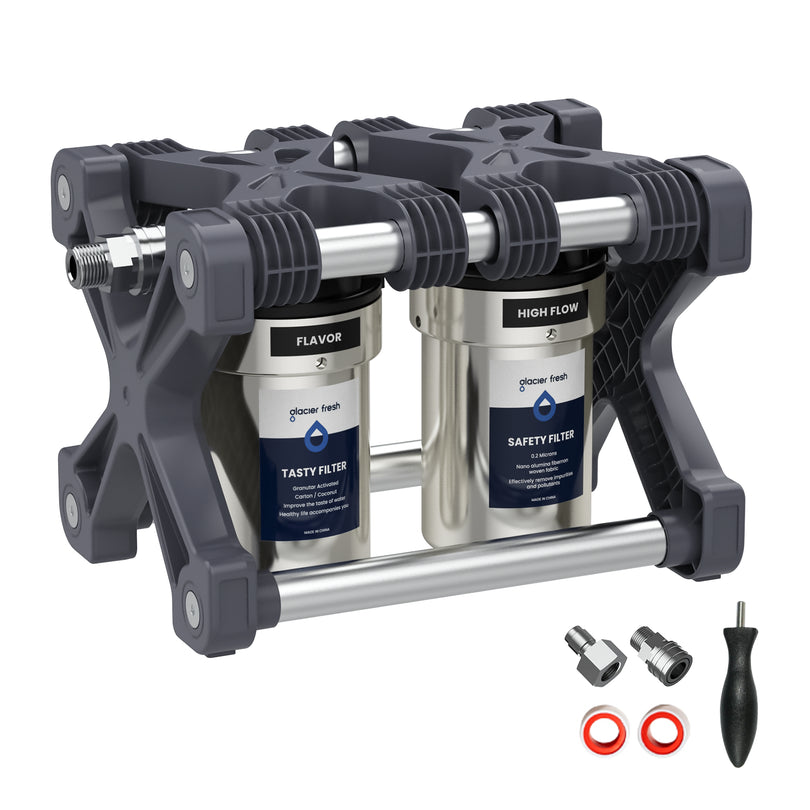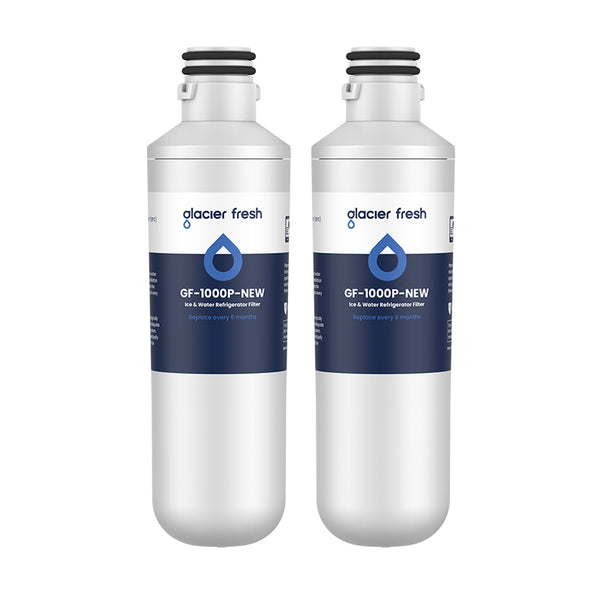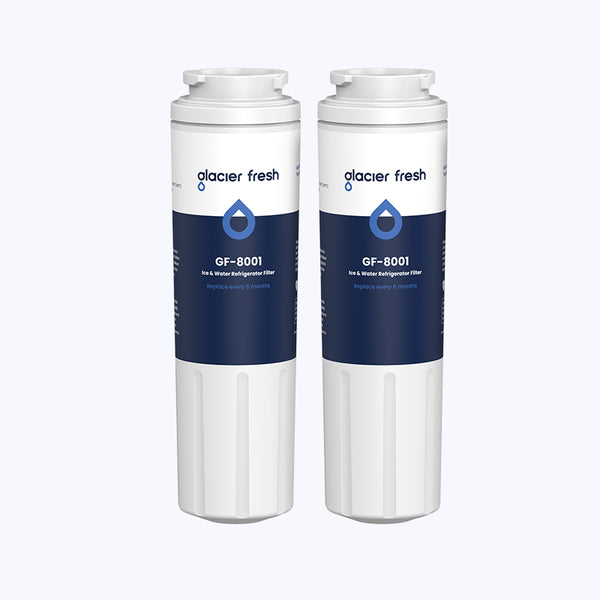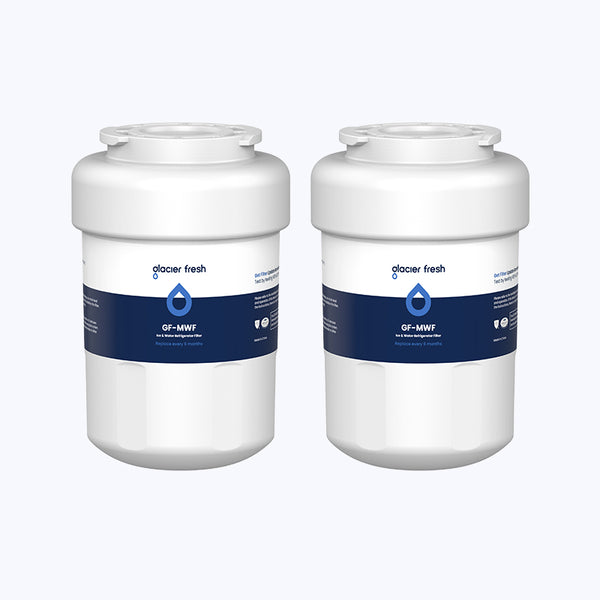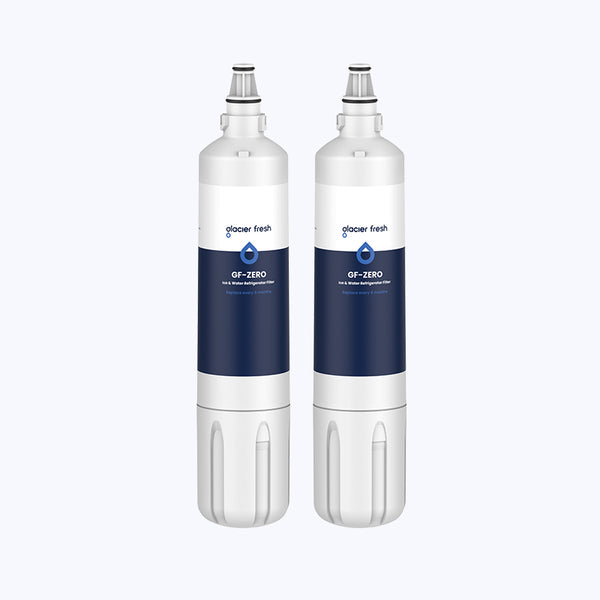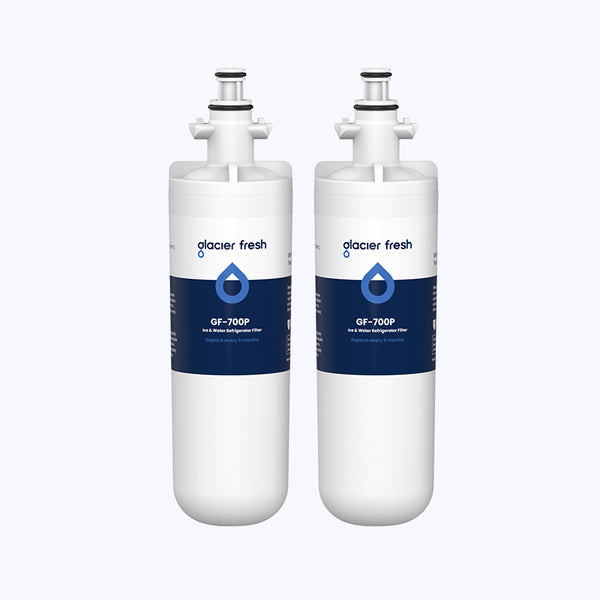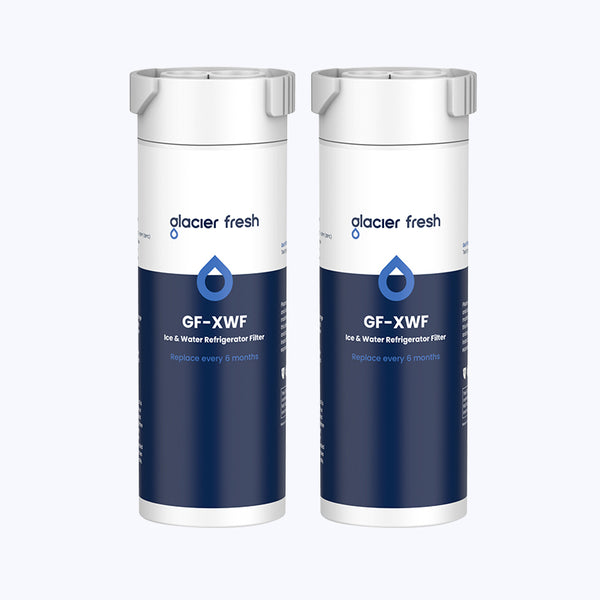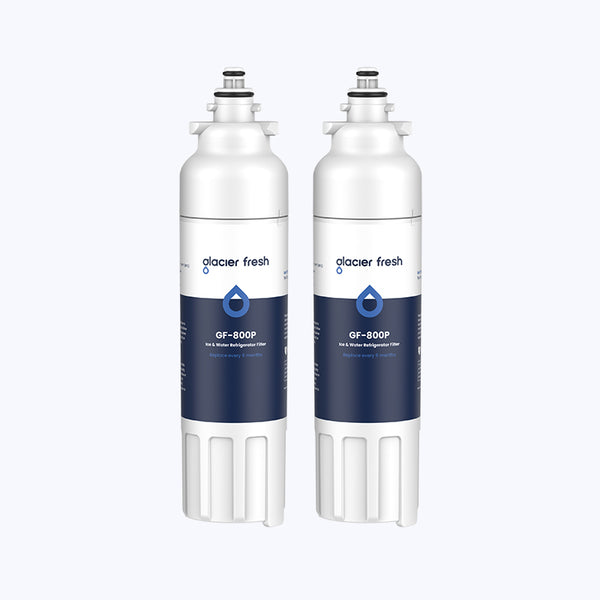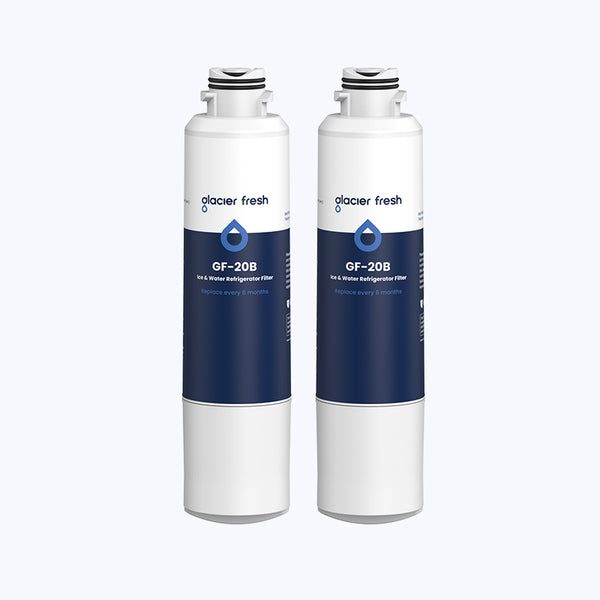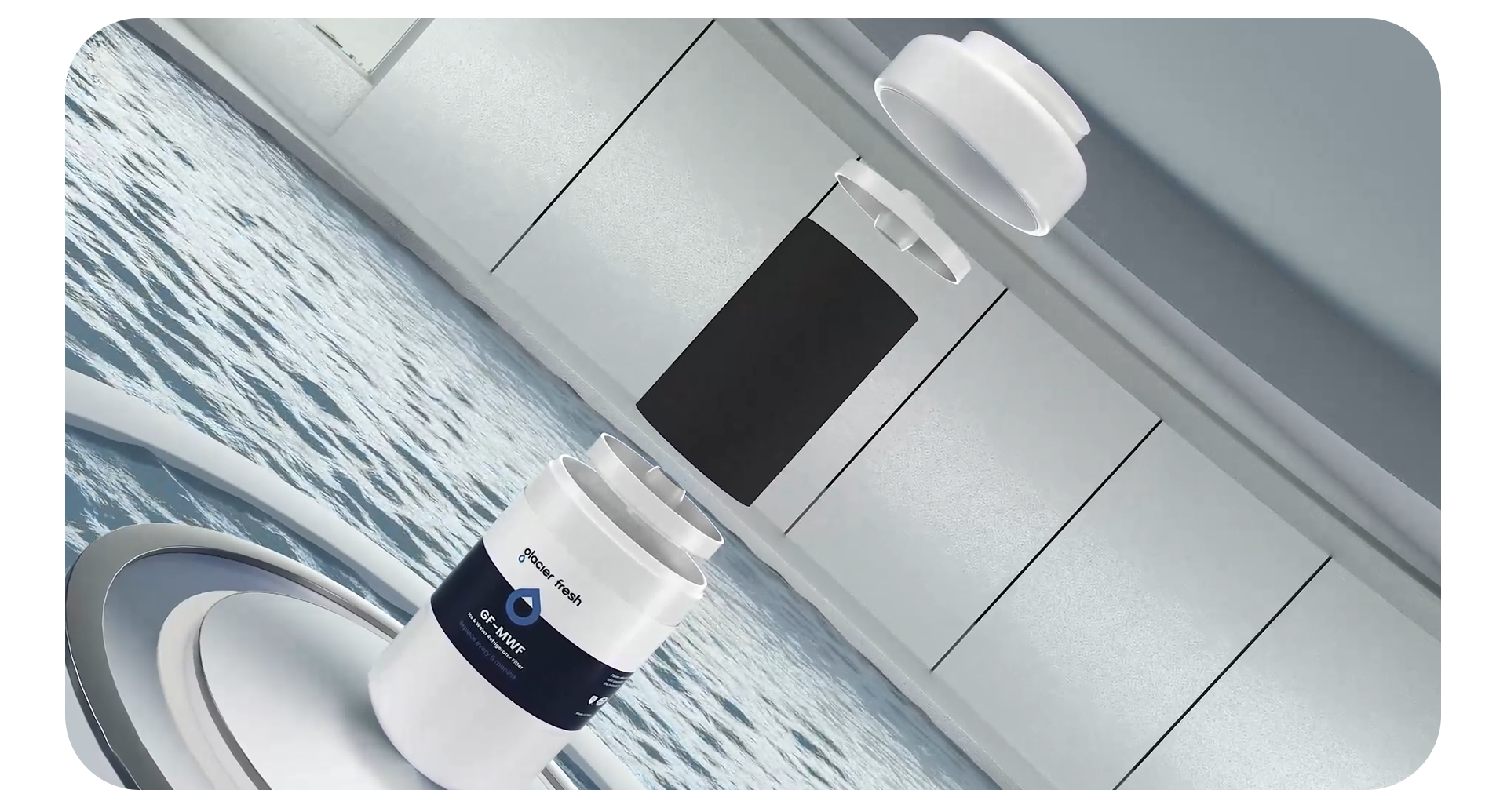Find Your Filter
Water filter for fridge systems are highly effective at improving the quality of your tap water, especially when properly maintained and replaced regularly. A good water filter for fridge is designed to reduce a wide range of contaminants, including chlorine, sediment, heavy metals, pesticides, and bacteria—all of which can negatively affect the taste, odor, and safety of your drinking water. The effectiveness of these filters for refrigerator water depends on factors like brand, model, and the original quality of your water. Filters from trusted brands, such as Glacierfresh, are often NSF-certified, ensuring they meet strict standards for contaminant reduction.
To maintain optimal performance, it’s important to replace your water filter for fridge every 6 months or according to the manufacturer’s instructions. Regular replacement ensures consistent water quality and keeps your drinking and ice-making water free from harmful substances. Investing in a high-quality water filter for fridge not only enhances taste and odor but also supports better health by ensuring that your household water is clean, safe, and free from contaminants.
Whether or not you need a refrigerator water filter largely depends on the quality of your tap water. If your water is already free of harmful chemicals and contaminants, a filter might not be strictly necessary. However, in most cases, tap water contains chlorine, sediments, and even heavy metals. A reliable refrigerator water filter can significantly improve the taste, smell, and overall safety of your water by removing these impurities.
Even in areas with "safe" tap water, using a water filter for fridge adds an extra layer of protection. It ensures that the water and ice you consume are as pure and fresh as possible. If you're uncertain about the quality of your water, it's worth checking a local water report or testing it yourself. Ultimately, having a filter for refrigerator water offers peace of mind, knowing your family is drinking cleaner, healthier water every day.
Most refrigerator filters use activated carbon with an average filtration rating of about 20 microns. These filters are excellent at removing chlorine, sediment, and organic compounds, significantly improving the taste and clarity of water. However, a typical refrigerator filter is not designed to eliminate all types of bacteria or viruses. While effective against larger particles, they don’t offer full microbiological protection.
If you're particularly concerned about bacteria or pathogens in your water, consider supplementing your refrigerator filter with a UV purifier or a reverse osmosis system. While a filter for refrigerator water is fantastic for everyday use, it may not suffice for eliminating harmful microorganisms. For most households, though, a refrigerator filter provides substantial benefits in terms of taste, clarity, and basic water safety.
Drinking unfiltered water can expose you to harmful contaminants like chlorine, lead, arsenic, and other heavy metals. While small amounts may not cause immediate issues, long-term exposure to these substances can increase health risks such as kidney damage, gastrointestinal problems, and even cancer. Filters for refrigerator water play a crucial role in removing these dangerous substances, ensuring safer water for drinking, cooking, and ice-making.
Without using filters for refrigerator water, you lose that vital layer of protection, and your water may taste or smell unpleasant due to chlorine, rust, or other impurities. A high-quality filter for refrigerator water ensures your water is purified by capturing unwanted particles and reducing harmful chemical exposure. For the best water quality and taste, it’s essential to replace your refrigerator filter regularly and avoid drinking unfiltered water, ensuring both safety and optimal hydration.
It is technically OK to use fridge water without a water filter for fridge, especially if your refrigerator includes a built-in bypass mode that allows water to flow even when the filter is missing. However, doing so means the water is no longer filtered for contaminants like chlorine, sediment, or bacteria. This can lead to unpleasant taste, bad odor, and potentially harmful impurities remaining in the water you drink or use for ice.
While it may seem convenient to skip the water filter for fridge, it's not recommended for regular or long-term use. A properly installed and maintained water filter for fridge ensures your water and ice are clean, fresh, and safe. If you want to protect your health and enjoy great-tasting water, it’s important to replace the water filter for fridge as advised by the manufacturer. Using an active filter gives you peace of mind and improves the quality of your everyday hydration.
The frequency of replacing a refrigerator water filter depends largely on how often you use your water and ice dispenser, as well as the quality of your home's water supply. However, most manufacturers recommend changing the refrigerator water filter every six months to maintain optimal performance. Over time, the filter can become clogged with sediment, chlorine, and other contaminants, which reduces its ability to purify water effectively and can affect taste and odor.
Regularly replacing your refrigerator water filter ensures your drinking water remains clean, safe, and great-tasting. If you notice a decrease in water flow, unusual taste, or odor, it’s a strong indicator that the refrigerator water filter may be due for replacement—possibly even sooner than the recommended schedule. By following proper maintenance, you’ll not only extend the life of your appliance but also ensure your family always has access to fresh, filtered water straight from your fridge.
Replacing your water filter for fridge regularly is crucial to maintaining clean, safe drinking water and ensuring the optimal performance of your refrigerator’s filtration system. Most manufacturers recommend replacing the filter every six months, although the exact timing depends on your water quality and household usage. Over time, the water filter for fridge becomes clogged with contaminants such as sediments, chlorine, and other impurities, which reduces its effectiveness. If you delay replacement, you risk having water that tastes unpleasant, or worse, contains harmful substances. To avoid this, check the user manual of your fridge or the filter packaging for specific replacement guidelines tailored to your model
Besides following manufacturer recommendations, you can also monitor signs that indicate your water filter for fridge needs changing sooner. For example, if your water flow slows down significantly or you notice an off-taste or odor in your water or ice, it may be time to replace the filter. Some refrigerators have filter indicator lights to alert you when the filter life is nearing its end. By maintaining a routine replacement schedule for your water filter for fridge, you ensure your drinking water stays fresh, clear, and safe for you and your family.
A high-quality water filter for fridge is designed to remove a variety of contaminants that can affect the safety, taste, and odor of your drinking water. Typical pollutants filtered out include chlorine, chloramines, lead, mercury, cysts, sediment, and other impurities. Chlorine and chloramines, commonly used in municipal water treatment, can cause unpleasant tastes and smells, while heavy metals like lead pose health risks even at low levels. The water filter for fridge uses activated carbon and other filtering media to trap these contaminants, improving both water quality and safety
In addition to removing chemical pollutants, the water filter for fridge also reduces physical particles like rust and dirt that might be present in the water supply, which helps protect your refrigerator’s internal components from damage. By effectively filtering out these impurities, your fridge can deliver cleaner, better-tasting water and ice. This is especially important if you live in an area with hard water or older plumbing, where contaminants tend to be more prevalent. Regular use of a certified water filter for fridge ensures your household water meets health and safety standards.
Absolutely, a water filter for fridge can significantly improve the taste of both your drinking water and ice cubes. By removing chlorine, sediment, and other unpleasant contaminants, the filter enhances the water’s flavor, making it fresher and more enjoyable to drink. Chlorine, in particular, is known for giving tap water a chemical taste and odor, which the water filter for fridge effectively eliminates. Consequently, the ice made from filtered water will also taste cleaner and less harsh.
Improved taste is one of the primary reasons many people choose to use a water filter for fridge. Not only does filtered water taste better, but it also encourages you and your family to drink more water daily, promoting better hydration and health. If you’ve ever noticed that your ice tastes “off” or has an unpleasant smell, switching to a filtered water source from your fridge can be a simple solution. Overall, investing in a quality water filter for fridge ensures a refreshing drinking experience and enhances the flavor of your beverages.
Choosing the best water filter for fridge requires considering several factors such as filter type, certifications, compatibility, and your water quality needs. First, ensure the filter is compatible with your refrigerator model to guarantee a proper fit and function. Next, look for filters certified by organizations like NSF International, which test filters for their ability to remove specific contaminants. A certified water filter for fridge assures you of both safety and effectiveness.
Additionally, evaluate the type of contaminants present in your water supply. If your water contains high levels of chlorine, heavy metals, or cysts, choose a filter specifically designed to reduce those substances. Some filters also include antimicrobial properties to prevent bacterial buildup. Price and filter lifespan are other important considerations; higher-end filters may last longer but could cost more upfront. Reading customer reviews and manufacturer details can help you select a water filter for fridge that balances cost, performance, and convenience for your household.
Yes, fridge water filters do affect the taste of ice cubes since the ice is made from the same filtered water. When you use a quality water filter for fridge, impurities such as chlorine, sediment, and certain chemicals are removed from the water before it freezes. This results in ice cubes that taste cleaner and more neutral compared to ice made from unfiltered tap water, which might carry off-flavors or odors.
If you’ve ever noticed your ice cubes tasting “funny” or smelling unpleasant, it’s often due to contaminants in the water source. By using a water filter for fridge, you improve the overall quality of the ice, making it more refreshing for drinks. Additionally, filtered ice cubes tend to melt more slowly and look clearer, enhancing both the aesthetic and functional aspects of your beverages.
Several clear signs indicate it’s time to replace your water filter for fridge. The most obvious is a noticeable change in water taste or smell—if the water starts to taste stale, metallic, or has an unpleasant odor, the filter is likely clogged and no longer effective. Another indicator is a reduced water flow rate from your fridge’s dispenser; a clogged filter restricts water flow, causing slow or inconsistent dispensing.
Some refrigerators have built-in filter life indicators that alert you when the filter is nearing the end of its useful life. Additionally, if you see cloudy or discolored ice cubes, it may mean the filter is no longer adequately removing impurities. Ignoring these signs can lead to poor water quality and potential damage to your fridge’s water system, so timely replacement of your water filter for fridge is essential for maintaining fresh, clean water.
Using your fridge without a water filter for fridge is generally not recommended for health and taste reasons. Without the filter, tap water flows directly into the fridge dispenser and ice maker, which means contaminants like chlorine, sediments, and possibly harmful metals or microorganisms are not removed. While tap water is often treated and safe for drinking, the water filter for fridge provides an additional layer of purification, improving taste and reducing potential health risks
Some refrigerators allow bypassing the filter, but this may void warranties or cause issues with water quality over time. If you choose to use your fridge without the water filter for fridge, you may notice unpleasant tastes or odors in your water and ice. Therefore, for safety, taste, and maintaining your refrigerator’s performance, it’s best to always use a properly installed and functioning water filter.

